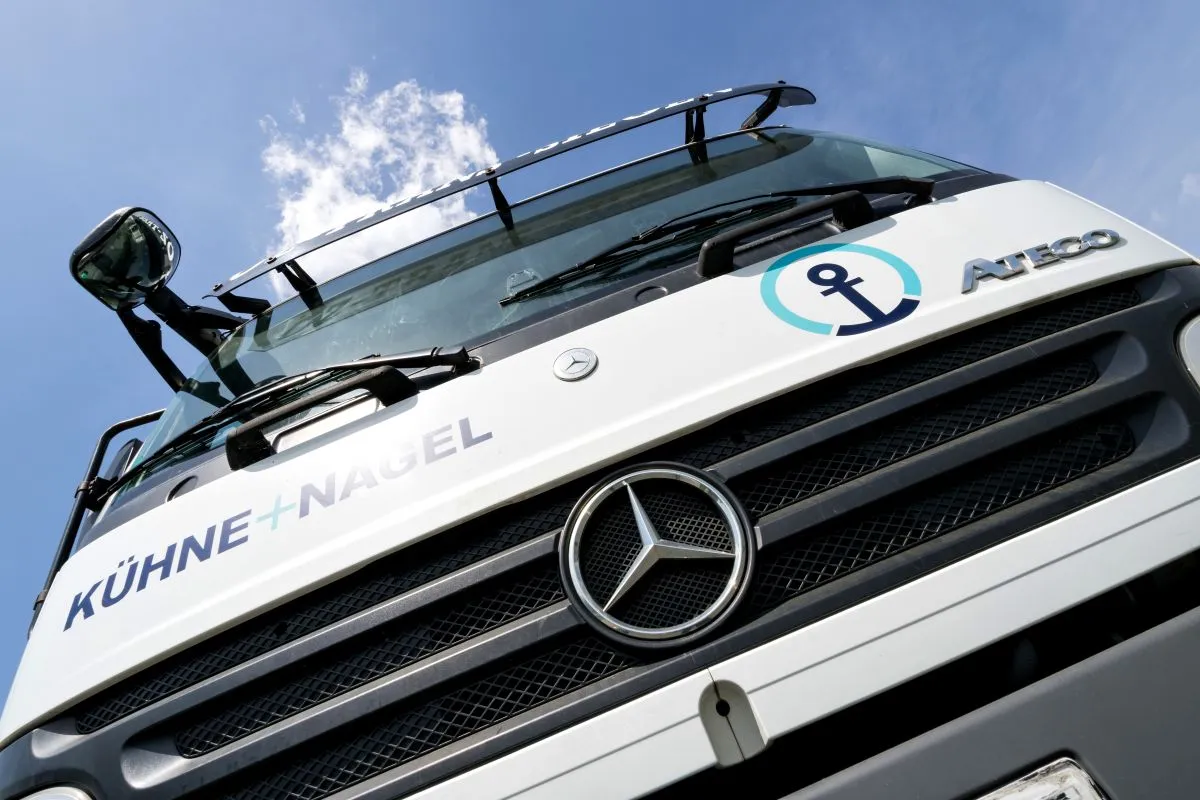According to the latest interim results published on 24 July, the Swiss-based logistics giant recorded CHF 12.5 billion in net turnover, an 8% increase year-on-year (or 12% in constant currency terms). Gross profit rose 4% to CHF 4.42 billion, while EBIT fell 4.4% to CHF 744 million. Earnings per share declined to CHF 4.48 from CHF 4.74 a year earlier.
“Our solid operational performance in the first half of 2025 once again demonstrated our resilience in a challenging market environment,” said Stefan Paul, CEO of Kuehne+Nagel International AG. “We have laid the foundation to gain further market share, particularly in Sea and Air Logistics.”
Sea Logistics: volumes up, profitability down
Sea Logistics, traditionally K+N’s strongest business, saw net turnover increase by 16% year-on-year to CHF 4.71 billion. Container volumes rose by 2%, with notable market share gains on Asia–Europe lanes.
However, profitability deteriorated. EBIT fell 7% to CHF 368 million, with a particularly sharp 21% year-on-year drop in Q2. The conversion rate declined to 31% in Q2, down from 39% a year earlier.
The company cited FX headwinds and volatile trade dynamics, particularly on transatlantic and US lanes. The so-called “Liberation Day”; a reference to a shift in US trade policy in Q2; marked a downturn in US Dollar strength and led to tariff-related uncertainty.
Air Logistics: early momentum fades
K+N’s Air Logistics division reported a 7% increase in volumes and a 10% rise in EBIT to CHF 230 million in H1. However, Q2 EBIT slipped by 2% compared to the previous year, indicating a softening trend.
The company highlighted growth in semiconductors, perishables, and cloud infrastructure, positioning these sectors as strategic priorities. The conversion rate remained steady at 26%, and turnover for the unit rose 8% to CHF 3.65 billion.
Road Logistics: subdued demand weighs on earnings
Road Logistics continued to struggle amid weak demand across European markets. Net turnover fell slightly to CHF 1.75 billion, and EBIT dropped 29% to CHF 47 million year-on-year. The segment’s conversion rate declined to 7%.
The acquisition of Spanish groupage provider TDN, finalised in June, is expected to strengthen K+N’s regional coverage in Iberia, though its impact on H1 figures was minimal.
Contract Logistics: solid operations offset by legal charge
Contract Logistics posted stable results, with net turnover up 1% year-on-year to CHF 2.37 billion. However, EBIT declined 6% to CHF 99 million, primarily due to a CHF 16 million provision related to an ongoing investigation in Italy.
K+N noted record operational performance in Q2 and the expansion of its long-standing partnership with Louis Vuitton, including a new distribution centre in Tokyo.
Free cash flow rebounds, but balance sheet tightens
Despite margin pressure, free cash flow surged to CHF 295 million, compared to just CHF 28 million in H1 2024. The improvement reflects better working capital management and reduced capital expenditure.
However, cash and cash equivalents dropped to CHF 581 million, down from CHF 1.15 billion at year-end 2024. The group also took on CHF 400 million in new borrowings, partly to fund acquisitions.
Guidance lowered as currency headwinds weigh on earnings
K+N confirmed its 2025 guidance on underlying recurring EBIT, adjusting the range to CHF 1.45–1.65 billion to reflect currency headwinds. The company expects continued volume growth in Sea and Air Logistics, supported by structural investments and sector diversification.
“Turnover growth clearly outpaced the market average, confirming the company’s strategic direction,” said Dr Joerg Wolle, Chairman of the Board.
Behind the spin: What the numbers really say
Kuehne+Nagel’s H1 results showcase growth in headline figures, but a deeper look reveals an organisation grappling with falling operating margins, weakening cash buffers, and growing liabilities.
While net turnover increased 8%, EBIT actually fell, and conversion rates deteriorated across all business units. In Sea Logistics, the group’s largest segment, EBIT declined 21% in Q2 alone, despite double-digit revenue growth. This suggests volume expansion is being achieved at the expense of pricing power.
Moreover, the drop in cash reserves (CHF 1.15bn → CHF 581m) and the increase in liabilities tied to acquisitions (including a CHF 585m put-option liability for IMC) point to a tighter and more leveraged balance sheet than headlines suggest.
The legal provision in Contract Logistics further dampens confidence. Though framed as a one-off, the CHF 16 million charge hints at possible reputational or regulatory fallout.
Air Logistics performed more steadily, but even here the Q2 EBIT decline raises questions about sustainability. With conversion rates plateauing, the dip in Q2 EBIT suggests some softening in profitability; the margin story is not entirely reassuring.
Lastly, while the company celebrates market share gains, it’s unclear how much of this growth is “bought” through aggressive pricing; a strategy that may not hold up if macroeconomic conditions worsen.
In short, K+N is still a dominant player, but the H1 2025 results suggest that beneath the surface, resilience is being tested on multiple fronts.
In case you missed it: Need EV chargers at your depot? Don’t miss this £1 million EV charging grant











